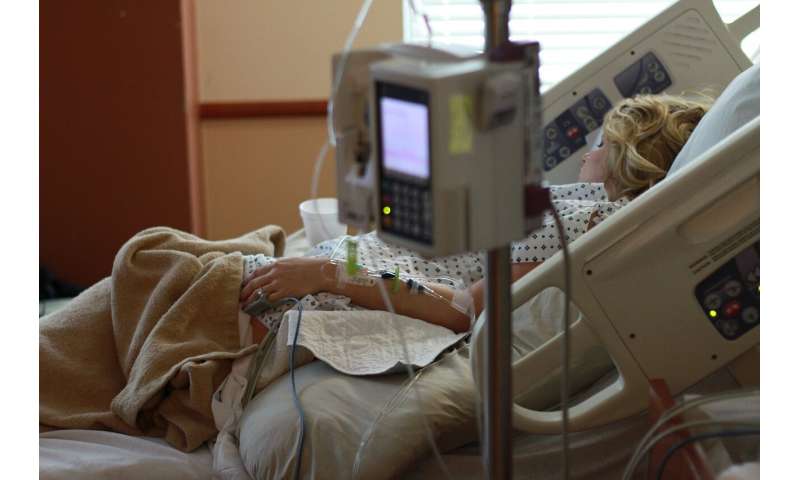Coronavirus patients could suffer from post-intensive care syndrome. What is that?


Coronavirus patients who require treatment in an intensive care unit could suffer from post-intensive care syndrome (PICS), experts say.
In general, patients who require intensive care are at risk for mental health issues such as post-traumatic stress disorder, anxiety and depression when their treatment is over, according to Weill Cornell Medicine at Cornell University. They also can suffer cognitive impairment and physical limitations.
These patients include those who experience severe respiratory failure requiring them to be put on a ventilator, along with those diagnosed with septic shock, among other things.
It’s unclear what causes PICS, but a number of “stressors” can lead to it, including the use of ventilators and other “life-sustaining equipment,” and the use of pain or sedative medications that can have “mind-altering” effects, according to the Cleveland Clinic.
Although little is known about the long-term physical effects of coronavirus, some patients who become seriously ill with COVID-19 could be at a high risk for PICS, experts say.
Most people who are infected with COVID-19 will have mild symptoms, health experts have said. But of the 20% who are hospitalized with the virus, 13.8% have “severe disease” and 6.1% had respiratory failure or another “critical” illness, McClatchy News reports.
Dr. Daniela J. Lamas, a critical care doctor at Brigham and Women’s Hospital, wrote in The New York Times that although long-term studies on coronavirus survivors don’t exist yet, experts know recovery is possible for survivors of acute respiratory distress syndrome (ARDS). But it can take a while.
“We also understand that ARDS survivors can face a constellation of issues—anxiety, depression, post-traumatic stress, even cognitive dysfunction—after they recover from their critical illness,” Lamas wrote in The New York Times. “As we see more survivors of ARDS from COVID-19, these are questions and issues that we as doctors will need to address.”
Most coronavirus patients put on a ventilator will need to stay on it for one or two weeks, McClatchy News reports.
And the longer a patient stays in the ICU, the more likely they are to suffer long-term effects, experts tell NBC.
Additionally, one of the best ways to avoid post-ICU stress isn’t possible for coronavirus patients.
ICU patients need “to have humans around to orient them, to calibrate them, to touch them, to look in their eyes, and make them understand what’s happening,” Dr. E. Wesley Ely, professor of medicine and critical care at Vanderbilt University, told NBC. “But that’s exactly what the COVID patients won’t get because they’re all being isolated.”
Ely told NBC that doctors are learning more about how COVID-19 specifically impacts post-ICU disorder from countries where case counts have been high.
“We’ve had reports from places where COVID cases are high, like China and Italy, that there is a boatload of delirium experienced by these patients,” Ely told NBC.
But there are still things that can be done to help coronavirus patients in intensive care.
Source: Read Full Article